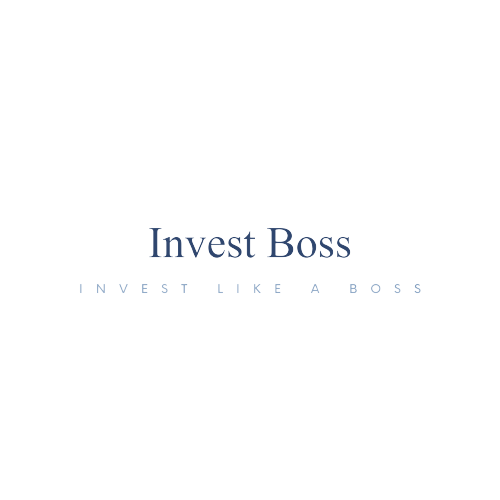The Ripple effect is a general economic and financial concept, but one could also argue it's a psychological phenomenon. It's the notion that an event may have consequences that are not immediately foreseeable. For example, if someone has a wrong decision at work and it impacts the quality of their co-worker's tasks and performance, the ripple effect can last until the day they leave their job. In terms of the stock market, ripples might occur when there is a continuous decline in stocks for a while or when traders lose trust in certain companies or industries, which causes them to sell all investments from those categories.
What is the ripple effect in the stock market?
The ripple effect in the stock market refers to a situation where an event or various events affect the price of stocks and shares. There can be a ripple effect when traders lose faith in certain companies or industries, which causes them to sell all investments from those categories. While some economists have tried to explain the it, it is best to understand this concept as a global phenomenon that can happen because of several factors, including political disturbances, natural disasters, or even lousy job performance by investors and traders.
Over the years, it has been observed that any time the market experiences a fluctuation, there are always individuals and companies who will either gain or lose money due to these changes. The ripple effect is just another way to look at the many possible ways people and companies can try to profit from strong or weak market conditions. Examples of ripples include:
1. When the FED declares a rate hike, it will have an impact on the market, causing stocks to decline in value
2. A news report indicating that a major corporation has been hacked will cause traders worldwide to sell their shares in companies related to this industry or practice.
3. A poor job performance on the part of an investor will have effects that might affect their work colleagues, who will either compete with the investor for a promotion or lose trust in their skills and capabilities.
Ripple effect finance
Financial ripple effects are the effects of initial acts that hurt the fundamental value of a company (or companies). It can be said that these can also occur as a consequence of political predictions or natural disasters. But in all cases, there are many who, directly or indirectly, are severely affected by events in financial markets. Because of this fact, there is an effect in finance, as it can affect an investor's perception, investment strategy, and financial risks.
Who can experience the it?
People who have financial transactions linked with stocks and shares and those employed in the stock market are likely to experience the ripple effect. To understand this, it is essential to note that fluctuations that occur in the economy do not just affect stock values but also other factors such as currency exchange rates and thus play a significant role in influencing markets and trade.
How to deal with it
Investors who are unaware of how to predict future market trends and who do not know how to react to changes in the economy are likely to experience a ripple effect. One way to deal with a is always to have sufficient information on the market and keep track of any political or economic events that might affect their portfolio. At the same time, investors need to plan out different scenarios to prepare themselves for the worst-case scenario, which will allow them to survive any economic situation without losing much money. Also, investors should learn how to manage stress when things get rough. They need to know how long they can hold on before selling off their assets, and they should adapt their investment strategy accordingly.
Conclusion
Ripple effects can be helpful and dangerous depending if they are a positive or negative phenomenon. The effect can help investors buy stocks in the industry to boost their profits because of fear of a declining price. It can be devastating to the stock market if a company that is not involved with the decline causes a decline in price because they are the only ones losing money. Ripple effects, however, are unavoidable and should be managed accordingly, especially when it comes to investments.

What is the ripple effect in the stock market?
The ripple effect in the stock market refers to a situation where an event or various events affect the price of stocks and shares. There can be a ripple effect when traders lose faith in certain companies or industries, which causes them to sell all investments from those categories. While some economists have tried to explain the it, it is best to understand this concept as a global phenomenon that can happen because of several factors, including political disturbances, natural disasters, or even lousy job performance by investors and traders.
Over the years, it has been observed that any time the market experiences a fluctuation, there are always individuals and companies who will either gain or lose money due to these changes. The ripple effect is just another way to look at the many possible ways people and companies can try to profit from strong or weak market conditions. Examples of ripples include:
1. When the FED declares a rate hike, it will have an impact on the market, causing stocks to decline in value
2. A news report indicating that a major corporation has been hacked will cause traders worldwide to sell their shares in companies related to this industry or practice.
3. A poor job performance on the part of an investor will have effects that might affect their work colleagues, who will either compete with the investor for a promotion or lose trust in their skills and capabilities.
Ripple effect finance
Financial ripple effects are the effects of initial acts that hurt the fundamental value of a company (or companies). It can be said that these can also occur as a consequence of political predictions or natural disasters. But in all cases, there are many who, directly or indirectly, are severely affected by events in financial markets. Because of this fact, there is an effect in finance, as it can affect an investor's perception, investment strategy, and financial risks.
Who can experience the it?
People who have financial transactions linked with stocks and shares and those employed in the stock market are likely to experience the ripple effect. To understand this, it is essential to note that fluctuations that occur in the economy do not just affect stock values but also other factors such as currency exchange rates and thus play a significant role in influencing markets and trade.
How to deal with it
Investors who are unaware of how to predict future market trends and who do not know how to react to changes in the economy are likely to experience a ripple effect. One way to deal with a is always to have sufficient information on the market and keep track of any political or economic events that might affect their portfolio. At the same time, investors need to plan out different scenarios to prepare themselves for the worst-case scenario, which will allow them to survive any economic situation without losing much money. Also, investors should learn how to manage stress when things get rough. They need to know how long they can hold on before selling off their assets, and they should adapt their investment strategy accordingly.
Conclusion
Ripple effects can be helpful and dangerous depending if they are a positive or negative phenomenon. The effect can help investors buy stocks in the industry to boost their profits because of fear of a declining price. It can be devastating to the stock market if a company that is not involved with the decline causes a decline in price because they are the only ones losing money. Ripple effects, however, are unavoidable and should be managed accordingly, especially when it comes to investments.


